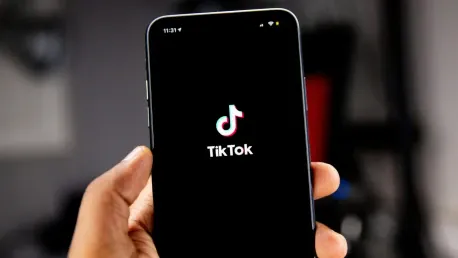As the contentious April 5th deadline looms, all eyes are on TikTok and its potential to navigate a U.S. ban. At the heart of the debate is Oracle, a formidable cloud computing leader striving to secure TikTok’s foothold in the United States. How did this tech titan find itself entangled in such a complex web of national security, data privacy, and global geopolitics?
The High-Stakes TikTok Situation
The countdown to April 5th has turned the spotlight on TikTok’s tenuous U.S. presence. The app, known for its viral dance crazes and hard-hitting 15-second content, has drawn scrutiny from U.S. authorities over data security concerns. Oracle has emerged as a significant player in this high-stakes game, balancing the twin imperatives of technological dominance and national security.
Relevance of the TikTok Debate
The gravity of the TikTok debate extends beyond the app itself. The United States perceives TikTok as a potential threat due to its Chinese parent company, ByteDance. This unease underscores a broader global narrative where national security intersects with data privacy in the digital age. For tech companies, this situation is a vivid reminder of geopolitical forces shaping their operations and affecting consumer interests worldwide.
ByteDance’s Deadline and the Bidder Landscape
ByteDance is facing relentless pressure, with the U.S. government mandating its divestiture of TikTok by the fast-approaching deadline. The contest among tech giants to acquire TikTok is fierce, featuring heavyweights like Microsoft, up-and-comer Perplexity, and, of course, Oracle. Oracle’s competitive edge lies in its current partnership with TikTok—a collaboration that potentially gives it an upper hand in this corporate tug-of-war.
Project Texas and Data Sovereignty Solutions
Oracle is not new to addressing data sovereignty concerns. Its initiative, Project Texas, proposes routing U.S. user data through Oracle’s cloud infrastructure, effectively controlling who can access this valuable information. Additionally, the strategy might involve increasing stakes by U.S. investors in ByteDance to reduce Chinese ownership to below 20%. This dual approach seeks to satisfy both U.S. security requirements and ByteDance’s ownership interests.
Expert Opinions and Credible Insights
Industry experts offer a range of opinions on the implications of Oracle’s potential acquisition. Tech analyst Alex Monroe points out, “Oracle’s existing infrastructure and experience make it well-equipped to handle the complexities of data security.” Meanwhile, national security specialists emphasize the importance of ensuring that U.S. user data remains within American jurisdiction to mitigate any risks. ByteDance stakeholders express cautious optimism, recognizing the necessity of these measures in continuing TikTok’s operations in the lucrative U.S. market.
Practical Implications and Future Outlook
The ongoing saga with TikTok serves as a case study for other tech platforms. Similar scrutiny awaits companies that handle massive amounts of user data while navigating international boundaries. Industry insiders suggest that a clear framework for data governance and proactive compliance strategies are crucial for weathering such geopolitical storms. Looking ahead, the collaboration between TikTok and Oracle could set new precedents in how tech firms manage data security and align with national policies.
The unfolding narrative around TikTok’s future in the U.S. underlines the intricate dance between corporate interests, national security, and user data privacy. As this high-stakes drama continues to evolve, lessons learned here will likely reverberate throughout the tech industry, shaping how companies approach similar challenges. The resolve shown by Oracle and ByteDance indicates that innovative solutions are not just possible but essential in today’s interconnected world.









